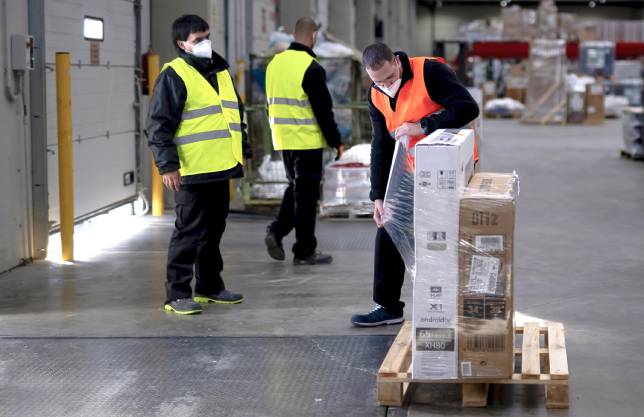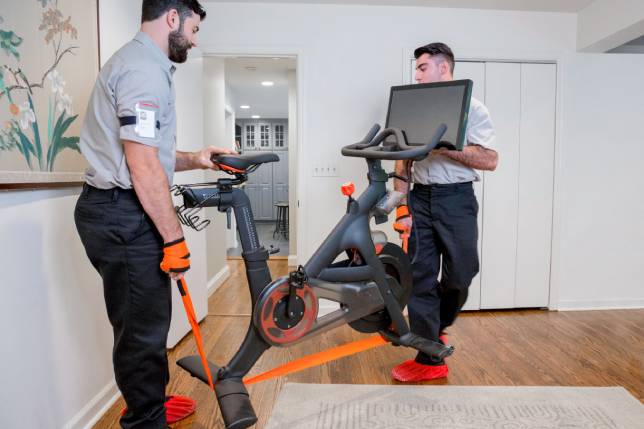Inventory management is a critical part of any business. That’s particularly true if your products are B2C retail or e-tail and heavy or bulky, like large appliances that require a two-person delivery team. If your company doesn’t have the right amount of stock stored in the right locations, you can’t ensure that deliveries will be made on time. This can result in lost revenue and customer attrition.
This is where forward stocking comes into play — it can be a critical strategy for any business that needs to manage its stock levels close to end-customers. Here’s what your business needs to know about forward stocking and the ways it can benefit your inventory management.
What Is Forward Stocking?
Forward stocking is a distribution practice whereby products are stored close to the customer in preparation for the “last mile” leg of their journey. This usually means the goods are positioned 88 miles or less from their expected final destination.
By storing inventory close to customer concentrations, such as key metropolitan areas, you can decrease transportation costs and transit times. Importantly, forward stocking can also improve customer service for high-ticket, inside the home deliveries.
Benefits of Forward Stocking for Inventory Management
There are several reasons why your business should consider using forward stocking as part of your inventory management strategy. Here are three of the most important benefits:
- 01
Increased Speed-to-Customer and Quality of Service
Forward stocking gets products in the hands of customers faster. In the consumer world, where expectations for next-day or two-day delivery have become the norm, speed is crucial to delivering quality service. Additionally, if there are issues with an order, you have easily accessible replacement inventory located nearby. When your customers feel you prioritize their satisfaction, they’ll be more likely to give you repeat business.
- 02
Fewer Over, Short and Damage (OS&D) Claims
Another benefit of forward stocking is that it can help reduce the number of over, short and damage (OS&D) claims. This saves your business money on replacements and returns, while also improving your reputation. OS&D reduction is especially important when it comes to high-ticket items or products that are sensitive to damage, such as medical equipment or appliances.
- 03
More Visibility
Lastly, forward stocking can help improve your inventory visibility. By positioning products closer to your market concentrations, the products will travel shorter distances on the last mile leg and, by using digital communications, you’ll be able to keep consumers informed about the status of their orders. With an average two-day delivery time within 75 miles, you can tailor your forward stocking to sales forecasts, which is more efficient than carrying too much inventory. This is especially important for companies that have seasonal products or fluctuating sales due to holidays or promotions.
Five Questions to Ask
If you’re looking for distribution services for your heavy or bulky goods, look for a high-quality provider that offers forward stocking. Additionally, you’ll want to ensure that the provider has experience with your industry and understands your product needs. Some considerations are:
Does the provider offer forward stocking services?
Do they have the necessary infrastructure or arrangements in place to provide forward stocking, as well as last mile services if you require them? RXO is the largest provider of last mile logistics for heavy goods in North America.
Is the provider experienced in your industry and with your type of products?
Do they know your industry and the types of products you ship? This is important because you need solutions that fully meet your needs. For example, if your products are sensitive to damage or require installation, you don’t want to train a provider on the job. This applies not only to transporting the goods, but the entire consumer experience.
Is the provider well-known in your industry and do they have references available?
You have a lot at stake, so you’ll want to do business with a reputable provider. It’s always a good sign when a provider offers references. Take the time to double-check that they have a strong track record of reliability with other companies in your industry. This will give you an idea of what to expect, and whether they’re a good fit for you.
Are the provider’s solutions flexible and scalable?
The more a provider can adapt to how you do business, the more likely you are to form a strong relationship over time. They should be able to scale their services as your volumes grow, and flex for seasonality or as your business evolves.
Find the Solutions You Need
As one of the industry’s largest providers of transportation services, RXO has extensive experience with B2B and B2C supply chains. Connect with us to find out how we can become a trusted partner for yours.
Last Mile – 3 min read
Last Mile Logistics for Heavy Goods
The “final mile” — is the last leg of the shipping journey for a product
Managed Transportation – 6 min read
Creating an Adaptable Managed Transportation Solution With a Major North American OEM
This managed transportation case study involves a multinational automotive manufacturing corporation as a client.
Resources by category
Text to describe more about what a user would get if they clicked on any of these links


